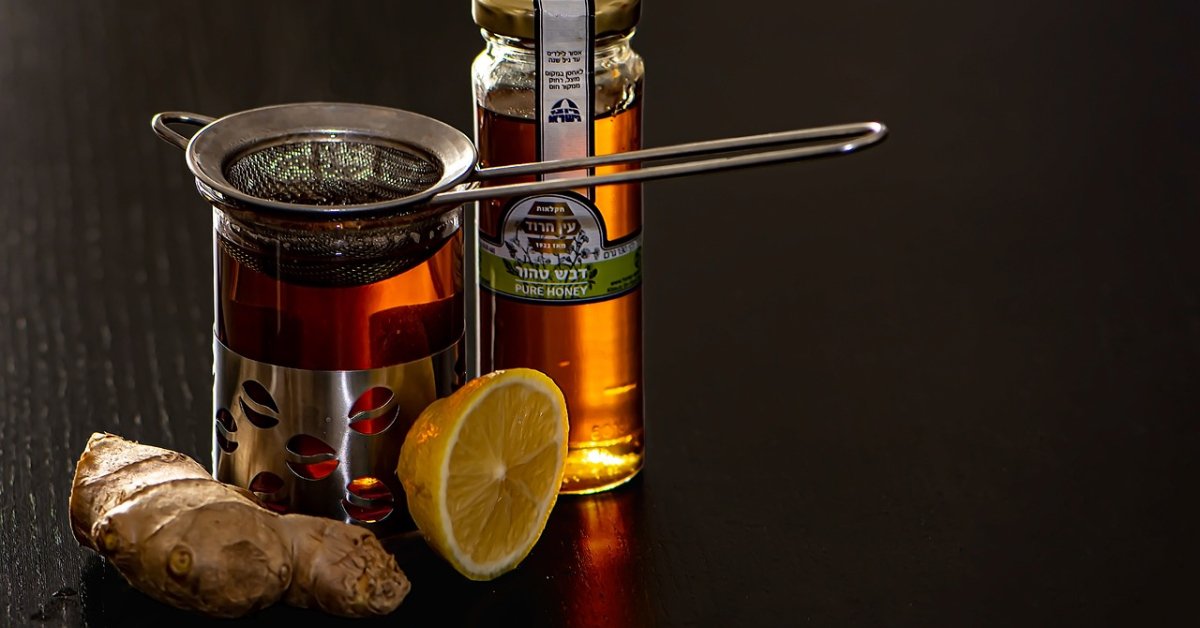I’ve always been curious about the ways our food choices shape our health. Lately I’ve noticed more people talking about vegan diets and their surprising benefits beyond just animal welfare. One claim that keeps popping up is that going vegan can help lower cholesterol.
That got me thinking about how powerful a simple change in what we eat can be. If swapping out animal products for plant-based foods really makes a difference in cholesterol levels maybe it’s worth a closer look. Let’s dive into what makes vegan diets stand out when it comes to heart health and see if the hype matches the science.
Understanding Cholesterol and Its Impact on Health
Cholesterol plays a major role in heart health. My experience as a vegan chef has shown me how food choices change cholesterol levels over time. Cholesterol functions as a waxy, fat-like substance in the body, found in every cell and needed for hormone production, vitamin D synthesis, and digestion (National Heart, Lung, and Blood Institute).
Cholesterol measurements fall into two main categories:
- LDL Cholesterol (Low-Density Lipoprotein): I often call this “bad” cholesterol when discussing heart health with clients. High LDL levels increase plaque in arteries, raising the risk of heart disease and stroke.
- HDL Cholesterol (High-Density Lipoprotein): This “good” cholesterol helps carry LDL away from arteries. Higher HDL correlates with lower cardiovascular risk.
My vegan cooking philosophy focuses on reducing foods that raise LDL—mainly animal products and processed fats. Plant foods, like beans, nuts, oats, fruits, and vegetables, contain zero cholesterol and promote lower LDL when eaten regularly.
Medical studies show that high dietary cholesterol and saturated fat intake links to a higher risk of elevated LDL levels, while diets built on whole grains, legumes, and vegetables lead to improved cholesterol profiles (Jenkins et al., 2003).
Understanding how food interacts with cholesterol simplifies making vegan recipes that don’t just taste great but support heart health too.
How Vegan Diets Affect Cholesterol Levels
I see how changing to a vegan diet can shift cholesterol numbers in a measurable way. I’ve made and taught hundreds of vegan meals that both taste good and can support balanced cholesterol profiles.
Key Nutritional Components in Vegan Diets
Plant foods central to vegan diets—like beans, oats, seeds, and leafy greens—naturally contain no cholesterol. Soluble fibers in ingredients like black beans, lentils, and whole oats bind to cholesterol and support its removal through digestion. Nuts and seeds, including walnuts, chia, and flax, provide plant-based omega-3 fatty acids that support better heart health profiles. Everyday meals I teach—stir-fries, grain bowls, and homemade veggie burgers—use whole ingredients that replace saturated animal fats with monounsaturated and polyunsaturated fats.
Mechanisms Behind Cholesterol Reduction
Eating vegan reduces cholesterol by replacing animal fats with plant-based nutrients. Plant-only foods mean dietary cholesterol drops to zero since animal products are the only direct source of cholesterol. Soluble fiber-rich ingredients, such as lentil stews and roasted chickpea snacks, boost the body’s capacity to remove LDL cholesterol. Phytosterols found in foods like sunflower seeds and avocados compete with cholesterol for absorption in the gut, further reducing LDL levels. By preparing meals using these whole, minimally processed ingredients, I’ve seen many people—myself included—improve their LDL cholesterol scores over time, as confirmed by studies like the 2019 review in Nutrients that showed plant-based eaters typically had lower LDL levels than omnivores.
Scientific Evidence Linking Vegan Diets and Lower Cholesterol
Strong peer-reviewed data links vegan diets with lower cholesterol. Leading journals show measurable differences in LDL levels among plant-based eaters.
Notable Studies and Findings
Major studies find significant LDL reductions from vegan diets. The American Journal of Clinical Nutrition (2020) published a meta-analysis showing plant-based diets lower total cholesterol by 13 mg/dL on average, compared with animal-based diets. A 2019 randomized controlled trial in Nutrients tracked 143 volunteers; the vegan group saw LDL drop by 15-25% after 12 weeks. Most reviewed studies report increased fiber intake from beans, oats, and vegetables as the main cholesterol-lowering mechanism. Specific examples include nuts—like walnuts and almonds—proven in controlled studies to cut LDL cholesterol by up to 10% over two months.
| Study/Source/Year | Main Diet | Change in LDL Cholesterol | Duration |
|---|---|---|---|
| AJCN Meta-Analysis, 2020 | Vegan/Vegetarian | -13 mg/dL | 12+ weeks |
| Nutrients RCT, 2019 | Vegan | -15–25% | 12 weeks |
| JACC Review, 2021 | Plant-based | Clear LDL reductions | Variable |
Comparing Vegan Diets with Other Diets
Comparisons show vegan diets consistently outperform omnivorous and vegetarian approaches for cholesterol management. Clinical trials cited in the Journal of the American College of Cardiology (2021) confirm that only vegan diets regularly achieve LDL drops above 10%, while omnivore diets change far less, even with lean meat. Dairy-free vegan meals lead to more pronounced LDL reductions compared with diets where cheese or eggs remain. I’ve seen these results in my own kitchen classes, where participants report both lower cholesterol scores and improved energy after several weeks of switching to vegan recipes for main meals. Animal fats, even in moderation, drive cholesterol numbers higher when compared with plant-centric menus rich in beans, fruits, and vegetables.
Practical Tips for Lowering Cholesterol on a Vegan Diet
Switching to a vegan diet opens up many ways to improve heart health. I find that making the right food choices and avoiding common pitfalls leads to better cholesterol numbers and delicious meals.
Foods to Include for Heart Health
Adding the right foods plays a key role in lowering LDL cholesterol. I focus on whole plant foods like:
- Beans and lentils: Black beans, chickpeas, and lentils provide soluble fiber to help lower LDL.
- Whole grains: Oats, barley, and quinoa supply fiber and promote fullness.
- Nuts and seeds: Walnuts, flaxseeds, and chia seeds contain omega-3s for heart support.
- Fresh fruits and vegetables: Berries, apples, oranges, broccoli, and spinach offer antioxidants and fiber.
- Soy products: Tofu, tempeh, and soy milk include plant proteins that help with cholesterol.
« Iodine Sources for Vegans: How to Get Enough Iodine on a Plant-Based Diet
Using Coconut Milk in Vegan Recipes: Boost Flavor and Creaminess in Every Plant-Based Dish »
I often combine these foods in recipes like lentil soup, quinoa salads, or walnut pesto pasta. Preparing meals from fresh ingredients, instead of processed options, keeps cholesterol-friendly benefits strong.
Potential Pitfalls and How to Avoid Them
Some vegan products aren’t as heart-healthy as they seem. I notice that packaged and fried vegan foods, like vegan burgers and chips, sometimes contain coconut oil or palm oil with saturated fats that raise LDL. Reading labels helps me avoid these ingredients.
Skipping fiber by relying on white breads or vegan sweets can blunt diet benefits. I swap out refined grains for whole grains and make my baked goods with oats or whole wheat flour.
I make sure to get enough vitamin B12 and omega-3s by adding fortified plant milks and ground flaxseed. When clients ask for indulgent desserts, I sweeten cakes with applesauce or ripe bananas instead of added sugar.
Consistently sticking to whole, plant-based foods and keeping treats in moderation supports lower cholesterol while letting me enjoy all kinds of vegan flavors at home.
Possible Challenges and Considerations
Navigating vegan diets and lower cholesterol goals, I’ve seen a few obstacles come up in my classes and kitchen. Meeting protein needs takes planning, especially for those used to animal sources like eggs, fish, and dairy. Tempeh, lentils, and tofu offer complete proteins, but variety helps round out amino acids.
Ensuring enough vitamin B12, iron, and omega-3s gets tricky with plant-based eating. Fortified plant milks, B12 supplements, and walnuts or chia seeds fill the gaps. Those who skip these essentials sometimes notice low energy or fatigue, according to my students’ feedback.
Evaluating processed vegan foods remains important for cholesterol management. Meatless burgers, vegan cheeses, and non-dairy desserts sometimes contain high saturated fat from coconut oil or palm oil. Comparing nutrition labels for saturated fat content, I usually find lower numbers in beans or vegetables compared to packaged options.
Maintaining fiber intake depends on whole-food choices. If someone switches to white bread or refined grains, fiber intake drops and cholesterol-lowering benefits fade. Dark breads, oats, and brown rice preserve fiber, keeping the vegan advantage strong.
Tracking nutrient intake helps, particularly for newcomers. Many clients ask how to balance recipes for heart health. I encourage meal planning using apps or charts showing vitamin, mineral, and protein sources, especially when preparing new vegan recipes at home.
Paying attention to taste and enjoyment matters just as much as nutrition. Bland or repetitive meals cause some people to revert to old habits. I recommend adding flavor with spices, herbs, and different cooking techniques. My favorite recipes feature bold dressings, roasted veggies, or toasted seeds for variety.
Conclusion
Switching to a vegan diet has transformed the way I think about heart health and food. It’s not just about what I leave off my plate but what I add—colorful veggies, hearty beans, and crunchy nuts all play a part in supporting healthy cholesterol.
I’ve seen firsthand how small changes can make a big difference. If you’re curious about lowering your cholesterol, a plant-based approach could be a delicious and rewarding path to explore.





